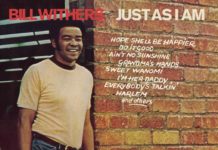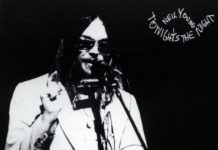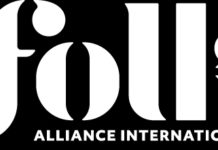Warner Music Canada is proud to announce that they have partnered with Make Music Matter to bring to the world original recordings written and produced by people scarred by conflict, AIDS/HIV and violence against women through their Healing in Harmony music therapy program. The first two releases, Kesho ni siku mupya (Tomorrow Is A New Day) and Mon corps n’est pas une arme (My Body Is Not A Weapon), were recorded in the Congo (DRC) and Rwanda and will be released under Make Music Matter’s own Samothrace Records label. Both albums are available worldwide for streaming and downloads beginning today, January 12, 2018. Five more albums are to be released in the coming months.
Make Music Matter was started by Canadian video and music producer Darcy Ataman who co-wrote and produced “Song For Africa” which featured a number of high-profile Canadian artists and was premiered in 2006 at the XVI International Aids Conference in Toronto. A graduate from the University of Manitoba with a Bachelor of Arts in Psychology, Ataman has led efforts to build a primary school in the Masai Mara, Kenya, supported two HIV clinics in Kenya and founded a scholarship program in Africa’s biggest slum before creating the Healing in Harmony music therapy program. With established programs in Rwanda and the Democratic Republic of Congo (DRC), Darcy will lead further expansions in Turkey and Iraq. He continues to centre his focus on HIV survivors, former child soldiers and child-headed households in Rwanda and has partnered with Nobel Peace Prize Nominee Dr. Denis Mukwege and Panzi Foundation in the DRC, focusing on women who have been sexually violated through war.
Make Music Matter’s unique brand of music therapy is centered on the belief that music can be an integral part of a community-driven, holistic healing model. Participants in the program are survivors of sexual violence and other traumatized populations.
The team travels into conflict areas around the world , working in tandem with local trained psychologists and music producers. Participants write, record and professionally produce songs about their emotions and experiences. Within this process it helps give back the survivors their sense of identity as it starts the healing individually and as a community.
Many of the recorded songs get played on local radio stations which then helps empower the artist’s in their recovery and also sends a message to others in the community that they are not alone.
Kesho ni siku mupya (Tomorrow Is A New Day) tracklisting:
Esther “Kesho ni siku mupya”
Patrick “Main dans la main”
Solange & Obeni “Maisha ni punition”
Neema & Kethia & Bahati “Nime kosa Amani”
Sandra & Bayura “Prassana aseme”
Gisele & Fadhili & Faradja “Safari yangu”
Zezi & Tuliya & Zawadi & Gisele “Sita coka”
Prince Kwamiso “Songa mbele”
Mon corps n’est pas une (My Body Is Not A Weapon) tracklisting:
Young Dorcas & Timbuktu “Mon corps n’est pas une arme”
Denise & Timbuktu “Nda fanya je”
Young Tricotage & Timbuktu “Njo tu maisha”
Vannerie & Timbuktu “Sina matunzo”







